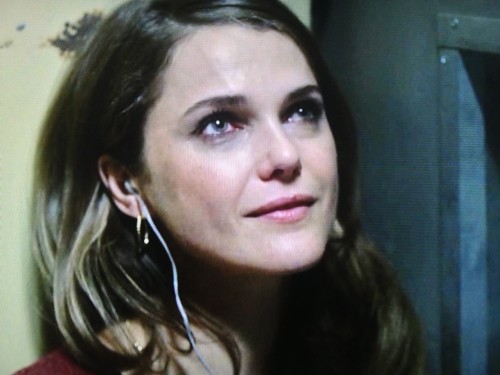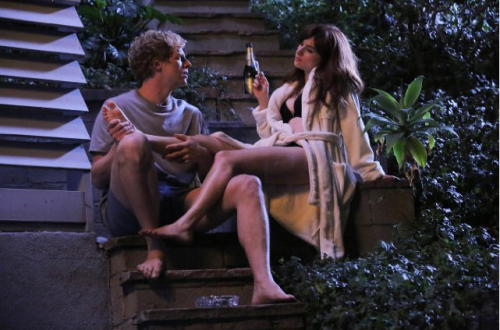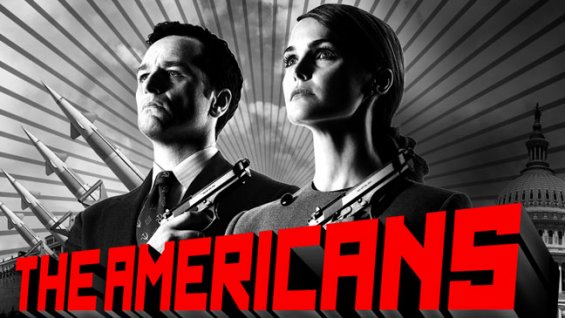Elisabeth
This guest post by Dan Jordan appears as part of our theme week on Violent Women.
Trigger warning for discussion of rape and torture.
The spy thriller achieved prominence in the early 1960s as a way to compensate for Western Imperial decline. Often featuring male, upper class agents travelling to exotic but foreboding countries with the use of up to date technology, defeating a foreign villain and exercising their heterosexual prowess over whatever damaged or naïve island nymphs they came across, these fantasies of colonial power achieved global appeal. This is nowhere more evident than the continued relevance and success of the James Bond films. Typically, the narrative follows Bond being somehow symbolically emasculated by M before eventually regaining his authority by crushing the plans of an unwieldy megalomaniac using the latest in spy tech and sexually dominating the Bond Girl. This pattern serves to ritualistically modernise the principally British but more broadly Western national character into a stylish, sadistic macho ideal to maintain a semblance of Imperial authority over increasingly independent countries.
The Americans alters such conventions in its setting of 1980s Washington, DC where American and Russian espionage operations in the post-Cold War race for advanced technology only ever results in a hollow stalemate or opportunities for petty revenge. Also, the influence of second wave feminism, interpreted in Bond as having freed women to choose their submission to men, is instead conceived as granting access to the requisite sexual agency and dominance of the spy thriller to women. The ideological battle between the FBI and KGB is thus a gendered one, as the national characters of Uncle Sam and Mother Russia are pitted against each other on a more even world stage.
The series centres on the lives of married, suburban travel agents Philip (Matthew Rhys) and Elizabeth Jennings (Keri Russell). Though better off than their parents, they still struggle to balance their commitments to their jobs and each other within the changing dynamics of family life. Receiving orders from their native Moscow to infiltrate, undermine and expose the rotten, oppressive soul of capitalism and build a power base for Western communism to flourish as deep cover agents for the Soviet “Directorate S” only complicates matters.
Family pic
As Philip grapples with maintaining loyalty to The Cause while enjoying the indulgences and privileges life in America grants him, Elizabeth remains committed to making socialists of their children Paige (Holly Taylor) and Henry (Keidrich Salati), using sex to leverage high ranking intelligence contacts and murdering just such contacts in a way that rejects their connection to her mission, her country and her true self.
At first refusing both protection and trust to remain independent and unknowable, Elizabeth’s lack of immunity to the strains of sexual deception and death dealing jeopardises her role as a representative of Mother Russia. Her failure to birth or sustain new revolutions and forge genuine connections with anyone besides Philip leaves her at odds with the mission she committed her life to. In this way, The Americans depicts initially validating, mature and self-sacrificing female violence as increasingly deadening and traumatic, removing the ability to be either a nurturing or controlling mother. However, this internal division is a necessary part of individuality outside the constant cycle of brinkmanship, betrayal and revenge.
Elizabeth’s ability to trust Philip as more than just her fellow agent is central in The Americans’ approach to violent women’s independence. At first, she sees their 15-year marriage as a necessary role play to maintain their cover before acknowledging that he genuinely values her and her choices. We are introduced to the Jennings as they bring Colonel Timoshev (David Vadom), an ex-Soviet defector, home in the trunk of their car having missed his deportation ferry. Awaiting further orders from The Centre, Elisabeth shatters the happy family surroundings by almost stabbing Philip when he tries to kiss her.
The root of Elizabeth’s distrust of Philip is developed later in the episode, as she confronts Timoshev for beating and sexually assaulting her in combat training, a reference to the mass rapes committed by the Red Army in Germany and Poland after the end of the Second World War. As Tymochev’s transport is continually delayed, Elizabeth uncuffs, fights and defeats him and prepares to cave his head in with a tire-iron to avenge herself. Before doing so, however, she accepts Timoshev’s dismissal of the rape as “a perk” of his position rather than a punishment for her inability to defend herself. As Elizabeth accepts that the experience was as much a part of the job as her family life is, Philip realises exactly what was done to her and kills Timoshev. Having himself considered defection because of the pleasure he gets from his American life, Philip chooses to reject the unchecked, unseen dominance of male authority he was otherwise committing to.
Showing he values Elizabeth’s choice more than a high ranking Soviet officer and that their relationship is more than a job to him, their status as husband and wife becomes more than a meaningless disguise for the first time. The Americans shows that trust does not infringe on the capability of women to avenge and empower themselves over past instances of violation and reduced status but is reliant upon treating choice as not only possible but valuable.
Sadly, Philip routinely fails to learn this lesson over the course of the first season. By constantly feeling the need to protect Elizabeth from the necessary risks and harm she experiences in the field, he becomes the main source of tension in their relationship. This split between the violent outside world and the Jennings’ house in turn sets up The Americans’ dynamic of false and genuine relationships. In episode five, Elizabeth disguises herself and seduces an FBI intelligence contractor (Eric McKay) to gain access to FBI radio car frequencies. Suddenly and non-consensually, he begins whipping her with a belt. After screaming, crying and begging him to stop, Elizabeth smiles as she stands and faces away from him. The scars she gained from the encounter have given her the visible leverage she needs to probe the contractor for the information she needs, validating her capability and commitment to suffering for The Cause.
When Philip sees the scars back at home and insists on getting revenge, Elizabeth chides him for trying to be her “daddy” and reminds him the violent acts committed against and by her are neither his responsibility nor do they impact on their personal relationship. Further invalidating personal relationships in the realm of counter-intelligence, Elizabeth is then tasked with killing faltering anti-ballistics contractor and KGB informant Adam Dorwin (Michael Countrymen). Having relied on the “friendship” of the head of the Russian embassy to avoid being turned by the FBI, his vulnerability after the death of his wife is comforted by a bullet in the head from Elizabeth. With this, The Americans establishes that genuine connection with the KGB or Elizabeth is unreliable because of their higher connection to Russia and the Communist project.
Elizabeth’s commitment to The Cause is also under-estimated by her and Philip’s KGB “handler” Claudia (Margo Martindale), an older and more experienced representative of Cold War Russia. Elizabeth’s ability to not let physical and emotional turmoil overrule her orders as Claudia eventually does marks her as the more modern and capable generation of Mother Russia. In episode six, Elizabeth is submitted to psychological torture by seemingly freelance counter-intelligence agents. Placed in a disused factory closet decorated with photographs of Paige and Henry, she is confronted by implicit threats being made against them and the falsity of her status as their “real” mother.
Before she is physically tortured in front of Philip, Claudia intervenes and reveals the whole ordeal was a test of their loyalty. The suggestion that her willingly receiving physical harm was the cut-off point for Claudia’s trust infuriates Elizabeth, who savagely beats and water-boards her handler. Inflicting on Claudia what she herself would’ve suffered for her mission, she rejects an older generation’s definition of mercy and, once more, her need for protection. As well, she reveals to Philip she had told The Centre about his considered defection, betraying his trust and invalidating his perceived duty to protect her simultaneously. Elisabeth’s willingness to be harmed, to hurt, kill and betray others for her country fulfill The Americans’ requirements of a true patriot.
Claudia disguises the wounds of her distrust
However, patriotism in The Americans infringes on the individuals ability to have their own lives and identities outside their ideological commitments, eventually justifying their need for revenge as the righteous will of their country. Elizabeth reaches this crossroad of identity once the head of Directorate S General Zhukov (Oleg Krupa) is assassinated by the FBI in episode 11. Ordered to end the escalation of violence by Claudia, Elizabeth instead abducts the US military colonel Richard Patterson (Paul Fitzgerald) who oversaw the operation that took the fatherly general away from her. Detailing the love she had for the general as she prepares to kills him, the colonel taunts her that living only to feed information to The Centre and undertake ideological revenge shows she doesn’t understand loving or being loved and has no basis for revenge.
After releasing the colonel, sacrificing her personal relationship with Zhukov and obeying her orders from Moscow once more, Elizabeth discovers this too was a manipulation by Claudia. By giving Elizabeth the colonel’s name and telling her not to go after him, Claudia attempted to prove Elizabeth’s lack of commitment to The Cause when she is damaged emotionally. Instead, Claudia avenges Zhukov herself by murdering the colonel in the season finale. The generational conflict between representatives of Mother Russia past and present is resolved as the jaded Claudia chooses her personal revenge for Zhukov over her commitment to orders and her agents. Elizabeth proves her connection to Russia is more genuine than Claudia and shows the role of Mother Russia in The Americans is based on repeated self-sacrifice.
Even as Elizabeth attempts to avoid becoming Claudia by committing to a trusting, genuine relationship with Philip to stave off a lifetime of trauma, loneliness and betrayal, the comfort they take in each other barely sustains them throughout season two. As Elizabeth recovers from a mortal gunshot wound, she loses influence and power in her home and work lives, forcing her to mould a new agent in the interim. Less willing to use sex to gain information and affronted that Paige is converting to Christianity rather than socialism in her early teens, Elizabeth channels her frustration into mentoring a young Nicaraguan communist named Lucia Chena (Aimee Carrero). On their first mission together in episode two, Elizabeth listens in as Lucia seduces a congressional aide (Nick Bailey) to reacclimatise to the demands of field work after her trauma.
After securing proof that America is training contra forces after Nicaraguan elections result in a communist victory, Lucia reluctantly agrees to kill the aide on Elizabeth’s order. Lucia now lives by Elizabeth’s demands and must imitate her to establish communism in Nicaragua, her own motherland. Elizabeth’s controlling influence here establishes an uneasy mix of handler and maternal roles, leaving the possibility for genuine connection with other women and new revolutions dependent on self-sacrifice once more.
Not long after, Lucia’s revolution falls to the cycle of revenge as she sets out to avenge her father and forces Elizabeth to sacrifice her role as a nurturer for The Cause. Blackmailing closeted gay military captain Andrew Larrick (Lee Tergesen) into giving them access to the contra training camp, Elizabeth attempts to regain her capability for violence and manipulation remains in the absence of sexual threat Larrick poses. Unfortunately, Lucia does not stop attempting to murder Larig for training soldiers who tortured her father to death. In episode eight, Elizabeth is given the ultimatum to kill Larrick and lose access to the camp or letting him kill Lucia in self-defence. Elizabeth lowers her gun and watches as he chokes her to death.
As Lucia fails to pragmatically sacrifice her emotions for her mission, Elizabeth must do it instead. Cracks of trauma begin to show at last, as Elizabeth cries alone in her dark house.
Even as Elizabeth’s “recovery” has resulted in a redoubling of trauma, loss and isolation while she loses control over her children’s development, the distractions of her work have led her biological daughter to adopt similar values to her own. Where forcing Paige to do rigorous housework in the middle of the night as Elizabeth did in Russia to learn maturity fails, allowing her to protest the American nuclear weapons programme succeeds in instilling a measure of socialist enterprise into Paige. Elisabeth, having rationalised her unquestioning loyalty to The Cause as adults “doing things that they don’t want to do” learns to support things Paige chooses for herself. Without the need for violence or manipulation that now inevitably result in revenge and betrayal, Elisabeth’s previously fake identity as Paige’s mother has delivered real change. As The Centre send out orders to begin training Paige as a KGB agent at the end of series two, Elisabeth is faced with the final choice of betraying her motherland or betraying her new found motherhood.
In The Americans, conventions of the spy thriller are altered by the context of its setting to create a crisis of gendered nationalism. As Elisabeth fights for the trust to sustain harm for her cause and remain independent over even the demands of her KGB handler, she becomes increasingly isolated and inhuman. In turn, her investment in genuine relationships limits her influence over her mature, ideological commitment to representing a modern, capable Mother Russia. Neither entirely nurturing or controlling, she slowly recognises the value of her own daughter’s independence as well as her own. In seasons to come, though, she may choose to sacrifice this as well.
See also: “Love, Sex and Coercion in The Americans”
Dan Jordan is an insightful, eclectic writer, aspiring media critic and University of Leicester Film and English graduate. Frequently submerged in new and classic movies, TV, video games, comics and criticism thereof, he still finds time to eat and sleep. Follow him on Twitter and at his regularly updated blog The Odd Review.

















